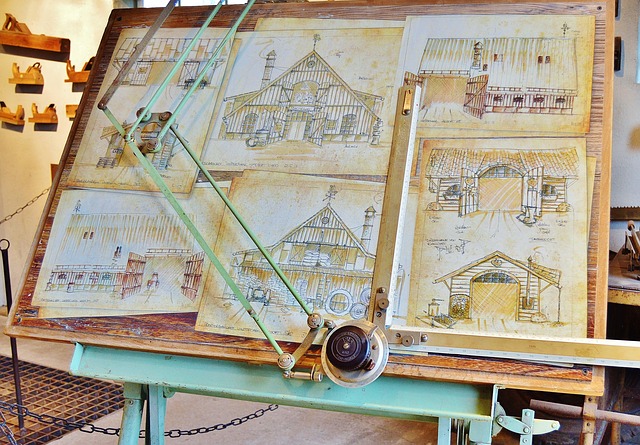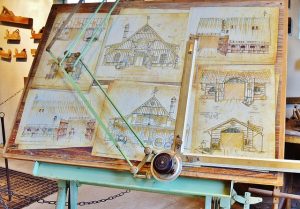
by Dave Cooper | Apr 2, 2017 | Building Recovery

Is this the right place to build recovery?
This is the second question in the series of planning your recovery. After asking you the first question “Is it your design“? I now want to ask you is this the right place to build recovery?
Remember that you must plan your recovery, so you must ask your self important questions before you start. For instance you may be taking it for granted that this is your location. But every time you build a house you build it somewhere, next to someone else, in a certain neighborhood. And you have a plan.
What you are considering is hard enough without making it harder! Give your self every chance.
Friendships
So now it’s time for you to take a long hard look at your friendships! think about each person in turn and include your family! Ask yourself these questions, has this person got my best interests at heart? Has this person shown friendship towards me or am I only useful as an associate? Would they still want to be around me if I was no longer addicted? Would it suit them if I stopped or would they prefer it if I went back to using? Did I meet this person through my addiction? Are they still addicted themselves?
If the answer is that they are not going to support your recovery then they have to go!
Environment
Even though your building is a metaphor it is still important to think about the ‘environment’ that it is going to be in. This can literally be a certain town or area of town. It can also be about who you are living with. Even your family can be the enemies of your recovery, sometimes without meaning to be. Remember that when I talk about the environment I am talking about your social environment. Are you going through a difficult period in your relationship?
We will talk about boundaries more in later Blogs but for now remember that it is far easier to plan where you are going to build recovery now than it is to move the house later.

by Dave Cooper | Mar 28, 2017 | Planning

Planning recovery
Is it your design?
Are you planning Recovery? Before you build anything there is a planning stage to complete. This stage is so important but is the first one you may be leaving out! Consider anyone trying to build a house without an architect! So you have materials and you know what you want to do. You are committed and willing to work hard! You are motivated to face challenges and are positive about your results but you will create nothing but an expensive mess!
Planning Recovery
You need a plan and this plan means asking yourself at least four important questions.
1 Is it your design?
2 Is this the right place to be building?
3 Are you ready to pay the cost?
4 What rooms do you want to build into your new life?
The first of which we will look at here and it is in my title
Is it your design?
“Of course”! you say, whose else could it be? The surprising answer is that it is more than likely to be someone else’s. Usually an important figure like your Father or other care giver that you feel is disappointed in you, or has a strong idea on who you are supposed to be. Or it could be a friends design, someone who influences you and you look up to. Maybe they have recovered and you want what they have? These things are very typical so don’t worry but understand this, if you fail to plan you are planning to fail!
Check your perspective
When people get into bad habits and addictive lifestyles they feel terrible about themselves and want to get back to where they should be in life and to regain respect and love from their close ones. This gives you a skewed perspective on things and will tempt you to rush into a project that is not even your own design but designed to please someone else. Here is the hard truth, if it is not your design it will not stand! You must understand this and apply these ideas before you start building.
We will look at the other questions in other posts but for now ask yourself this question. Is this really my design?

by Dave Cooper | Mar 24, 2017 | A2R, Method

Dave Cooper
Let me describe you
You are successful, financially in business or music or media. You are doing well in most areas except that you use alcohol and cocaine and it’s getting the better of you. You are money rich and time poor so you do not have three or six months to give to a residential rehab program. But you do know that you need something, you know that things need to change in your life. So what do you want from an addiction treatment program?
Or maybe you have a loved one who needs help? Do you want them to go to a rehab to learn ‘how to be a better addict’. Do you want them spending time around ‘bad influences’. If you are in the public eye and don’t want any publicity around your difficulties you will need absolute discretion which you are unlikely to get in a residential setting.
I haven’t got time to go to Rehab!
Everything above speaks about why you don’t want a long stay in a residential rehab. But what if I offered you a treatment package that doesn’t ask for you to be away from your family or your business for three months (or longer)? What if I offered you a treatment package that is so discreet that your business colleagues would not even know you were in treatment? What if I told you that this approach is more effective and has better success rates than residential programs?
My approach has been developed over many years and benefits from my experience of working in all the varied treatment methods. Here are a few things I have discovered.
-
That gains you make in your ‘real life’ are more substantial and produce more change.
-
That by dealing with today’s issues today you get the best way to understand what’s really going on with you.
-
That you will develop new skills and learning on-site in your real life.
-
That the ‘difficulties’ you face are often the best teachers you have in your life.
-
That for most people residential treatment is not needed.
You can’t do any of these things in a long stay residential rehab. Residential programs offer you ‘theoretical’ recovery. Not only is it not your ‘real life’, but the whole idea is to remove you from your real life. You can’t deal with your days issues because you are being protected from them by being in the rehab. You can’t develop these new skills in rehab, they must remain theoretical until you return home. The real question I want you to ask yourself is “Is there a good reason for me being here”? There are, of course some good reasons for choosing an addiction treatment program that involves residential treatment. One of the main reasons is that the home, work or social environment is too difficult or is overwhelming in some way. I doubt if this is the case for you.
An Addiction Treatment Program that works!
My approach is an ‘alternative to rehab’ and offers a comprehensive and proven effective method. Don’t give up months of your life being somewhere that you do not need to be! I will support you at home, at work and at play! No one even needs to know that you are in treatment!
For more details ring me on 07764996223 and I will be happy to answer your questions.
Thanks for taking the time to read this

by Dave Cooper | Mar 24, 2017 | A2R, Theory
 The Relational View of recovery from addiction
The Relational View of recovery from addiction
I take the ‘relational view’ on what are primarily social issues such as addiction. What does this mean? It means that your aim in treating your issue is focused on your relationships and social bonding. It means that the way you see yourself in relationship to others is largely responsible for the building and construction of your identity. Ultimately it means that “the family is the client”.
Avoiding the blame game
This is not a way of getting you to be ‘blaming others’ or offering an excuse for your behaviour or problems. Rather it is an approach that locates the issue ‘outside’ rather than ‘inside’ you. Of course it is necessary to include the latest research into the differences in the brain as well as encouraging personal responsibility. However for most people, the way we engage with others at work, friends and family (or don’t) can be a major player in both the way we got into and the way we will get out of these difficulties.
Again, this is not to say that endless counselling sessions about your past etc. are the answer. No, your treatment must be focused and involve the expertise of a specialist if you are not to waste a lot of time money and energy in your attempts to change.
A new approach
This approach is a significant move on from previous ideas that positioned the problem inside the self (the moral approach) or inside the mind (the medical approach) or inside the theology (the faith based approach). This approach places the issue inside your relationships or, to put it another way, your way of relating. You are ‘hard wired’ to bond with others at a deep level. There are many reasons why this may not happen well in life, but if you are addicted you have made a shift towards bonding with inanimate or inert things such as drugs or alcohol, work or gambling.
When your addiction becomes a serious issue we can say that you have ‘bonded at a deep level’ with something that is not alive. So the relational treatment is based upon encouraging you back into the world of the living and deepening the relationships with loved ones and others in your life.
The benefits of this approach
One of the many benefits you can receive through this treatment is that the techniques are completely transparent and so you become totally aware of what your issues are and how to practice the therapeutic aims you need. So this way you can take an extremely complex issue and reconstruct it as a simple daily practice.
Thanks for taking the time to read this.







